NRL veteran takes us through a typical Sharks ballwork session.
Whatever the sport, you generally don’t have to listen too long before an elite player or coach touches on the issue of game plans; how, if Team A doesn’t come up with an effective one, team B will score the chocolates. But what does this term actually mean? After all, if a sports contest is a sequence of millions of random events, how can a “plan” possibly be thought up to take any sort of advantage of all that resistance and human error?
Luke Lewis seems the perfect professional athlete to ask. Since landing on the scene as a Penrith Panthers pup back in 2001, he’s probably sat through more game plan meetings than anyone playing in the NRL today. A premiership winner with the Mountain Men, for whom he made over 200 appearances, Lewis is a Shire boy these days, mid-way through his third season with Shane Flanagan’s men. He is arguably the most consistent player in the game, and perhaps still one of most versatile going around. It’s these attributes which have seen the now-31-year-old utility selected 16 times for his country and 17 for the NSW Blues (more team meetings).
We rocked up to Shark Park in Cronulla mainly to learn about how Lewis trains; you know, how many kgs he deadlifts, etc. But the smart players know there’s more to the game than speed and brawn. Certainly, Lewis wasn’t about to share the Sharks’ specific game plan with a pesky team like Inside Sport, but he was happy to explain the philosophy behind a winning one ...
THE DAY AFTER
“We’ll always have a recovery session the day after a game. For example, if we play on a Saturday, on Sunday we’ll have a medical check and a session at the pool, just some general movement stuff, some swimming. Out of the water we’ll do a stretch and go through some basic movements, too. Then we’re back to training on the Monday at 8am. The day starts with a video session in the morning, into a prehab-type session where data like our body weight is collected. Our hamstrings are tested, groin, quads, lower back, just to see how our body has reacted to the game and the recovery. This rolls into a field session. We’ll be on the field by 9.15am until about 10.45am. In the middle of the day we’ll have a team lunch together at the club. Then it’s onto another video session; a preview of the next game we’ll be playing, before a weights session in the afternoon. Normally we’ll have a leg weights session on Monday, allowing them to recover early. Our full-body, power and upper-body weights sessions are spread out across the rest of the week.”
TIMES A-CHANGIN’
“Back when I started playing first grade in 2001, field sessions at training were a lot more defence-orientated. You’d prepare for three men in a tackle every now and then, but normally it would be two in a tackle. Now, there’s three tacklers in almost every ruck. Back in the early 2000s, the speed of the ruck and off the defensive line, I think, was nowhere near as fast as it is today. As well, in some ways, the physicality back then was a lot more intense and brutal than it is now. For example, the ref was a lot more lenient on things like shoulder charges and all that sort’ve off-the-ball stuff.”
GETTIN’ WARMED UP
“We’ll start our field session by walking through some hurdles, which gets our hips moving, warms up our lower back and gets all our fast-twitch fibres activated. Then we’ll go through some movements with rubber bands, which gets all the muscles through the glutes going, lessening the risk of suffering hammie or lower back problems. Next is a team stretch, which fires the body up that little bit more so that when we’re at full speed, we’re preventing muscle tears. Following that we’ll slowly work on getting our movement patterns right with exercises like high knees. We’ll work on our running technique, honing our footwork and stepping, changes in direction. What happens here, too, is that all the boys start talking, communicating, which prepares us for the teamwork aspect of training.”
THE GAME PLAN
“Working on our game plan means focussing on tactics which we think will suit our team. It’s about developing an in-game routine, knowing what to execute on a particular part of the field, or perfecting attacking shapes which will have the defence disorientated. We might be focussing on trying to pick numbers out of the defensive line so that we can create a four-on-three or a six-on-five situation, a bit of an overlap. It’s about just getting into a routine and making sure everyone knows their job and role and particular part of the field so that when it gets to the stage in the game when you’re tired and fatigued, you can fall back into your routine. Having a good game plan means you don’t have to think too much on your feet. All the preparation you’ve done during the week means you can basically go out and punch the plan out. In saying all that, obviously each team has players – your nine, seven, your fullback and your six – who are natural footballers who’ll just take over as opportunities arise.”
PLAN B
“Sometimes you have what you think is an iron-clad game plan, but you get out there and for some reason your team just doesn’t stick to it; you might end up doing a lot of attacking, you’re making errors, giving penalties away ... It’s very important, when you are tired, that you stick to the game plan, to the rhythm of your team. Doing so will get you through the next set of six tackles, which gets you back on the front foot and means you’re not stressing too much about being behind on the scoreboard while you’re fatigued.”
TO THE VIDEO
“Generally in our video sessions we’ll study our opposition’s recent defensive structures. After checking out which teams have had success against them of late, we’ll try to replicate their actions. The real game is trying to work out a team’s defensive pattern. It doesn’t guarantee you success on the field, but it does give you a good understanding of how you can pull the right numbers out of the line and get the right people in the right positions in defence. Our video work and field work kind’ve go hand in hand; we might study a game or two where a team has really pulled this weekend’s opposition apart and scored a couple of identical tries. If evidence like that shows up, naturally we’ll try to run the same patterns as the successful team in the video.”
PRACTICE GAME
“Generally we’ll use one of our field sessions to run through or rehearse our game plan; what we’re going to do as far as our yardage sets, attacking sets and defensive sets are concerned. We’ll hone those skills against our Under-20s team in what’s called an opposed session. Our soft-contact ‘game’ against the Holden Cup boys is probably 80 per cent defence-based, with the remainder focussing on our attack. We’ll run through everything, making our mistakes there and then. Later on in the week we’ll add the finishing touches in a captain’s run. That way, come game time, everything is clear in our heads.”
LESS IS MORE
“After an Origin game on a Wednesday, I’d rather have played an NRL game on the following Friday night than, say, on the Sunday afternoon. Leading up to a Friday game you’re still on a physical and emotional high from Origin. You’re a little bit sore, but you seem to get through it. You know that if you play on a Friday night, you’ll have the rest of the weekend off, which means a good 48-72-hour recovery to get your body right before you go back to training. If you play the Saturday or the Sunday after an Origin, it seems like everything is footyfootyfootyfootyfooty in between, you know? If you play Origin, you invest a heap of energy into that whole week; you’ll play the game – which is always a massive game – and then you come back to your club to prepare for a game that’s still three or four days away. Sometimes you just need a mental break. I like to jump on my Harley, just go for a ride to clear my head. It’s just you and the bike, mate, no one talking to you, no footy, really just concentrating on the road. I like to go clay target shooting, too, but I haven’t had an opportunity to get out there much this year. I also like jumping into the ocean and going for a swim or a snorkel, little things like that.”
IN MODERATION
“I just basically eat everything in moderation. For example, over the off-season I might try and get my diet clean by eating well, and I’ll feel like everything is going really well. But then, it seems that every time I eat super-clean and really worry about my diet, that’s when I seem to get little injuries; crappy ones like a calf strain or something like that. Ever since I’ve been eating in moderation, just eating what I feel like eating, it feels like everything has just fallen into place. If I feel like a piece of chocolate with a cup of tea or a coffee, I’ll have it. I don’t stress too much about that sort’ve stuff. I’ll have a protein shake after weights or after a field session if it’s there in our change rooms, but I’m not too big on supplements or things of that nature. I just sort’ve get out there, train, eat; try and recover my body that way ... Then turn up on the weekend and play.”
Related Articles
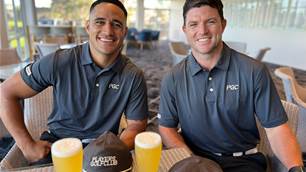
19 Holes With ... Chad Townsend and Val Holmes

Viva Las Vegas: Join Golf Australia magazine's Matt Cleary on a golf and rugby league spectacular
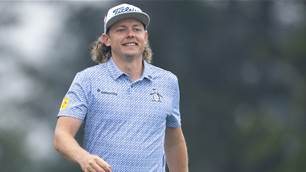
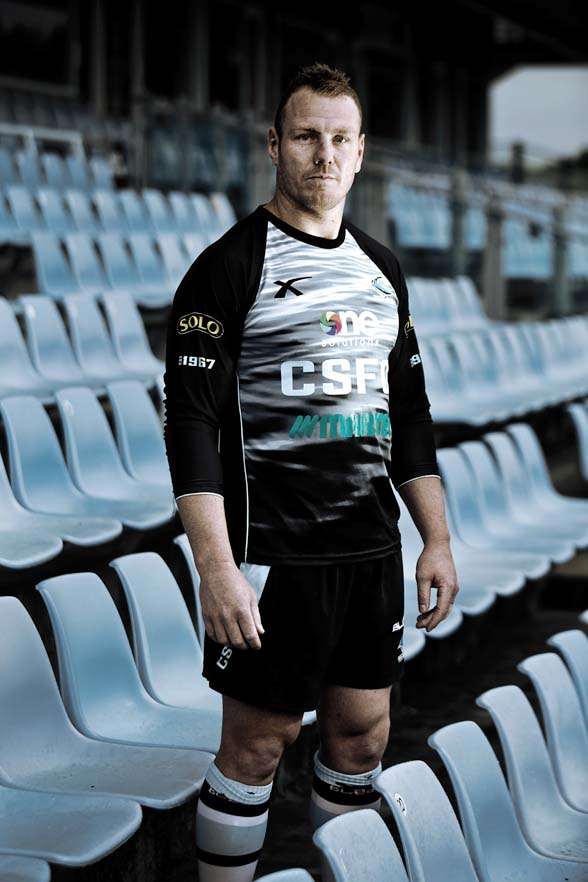
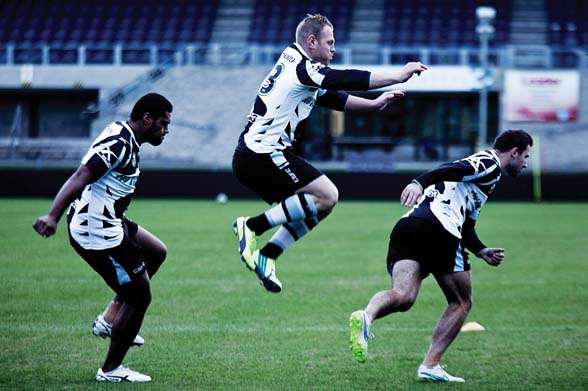

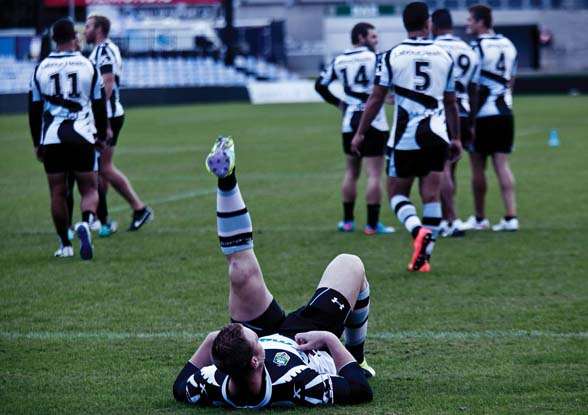
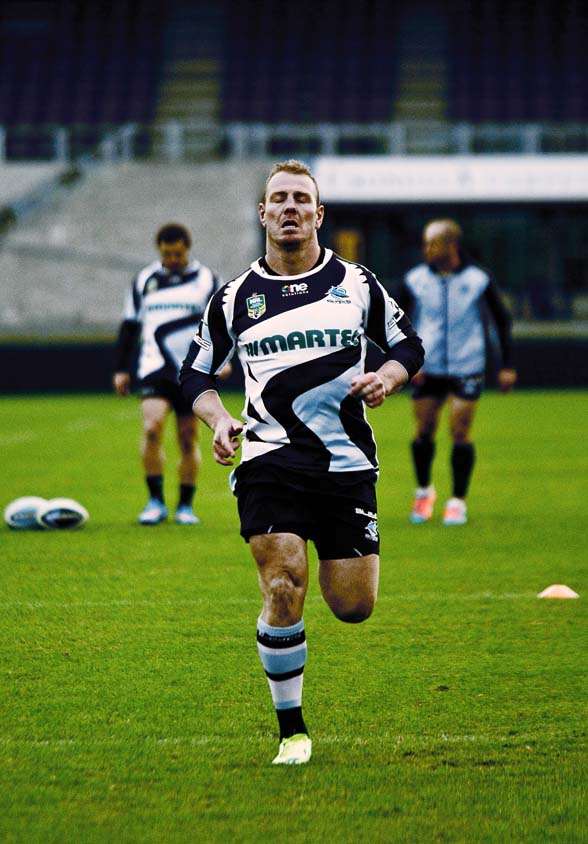
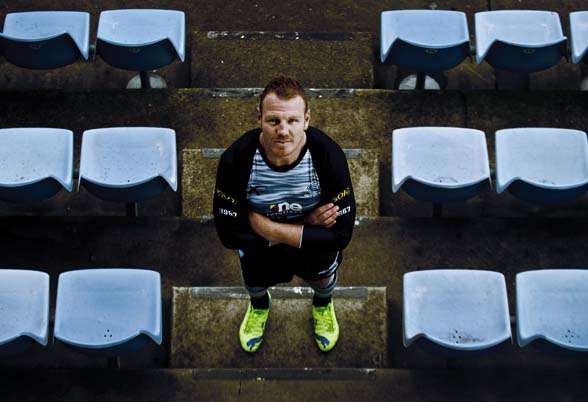
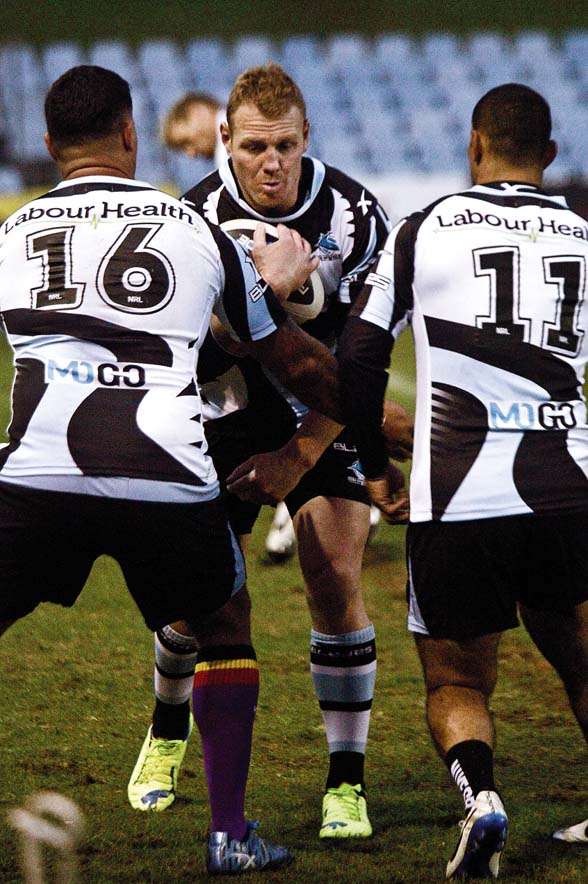

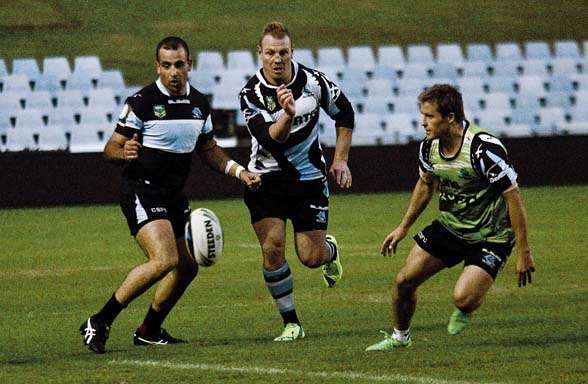






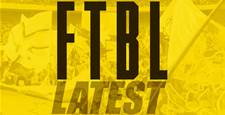

.jpg&h=115&w=225&c=1&s=1)




